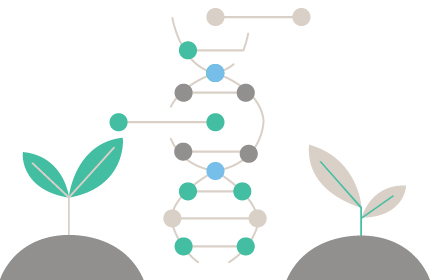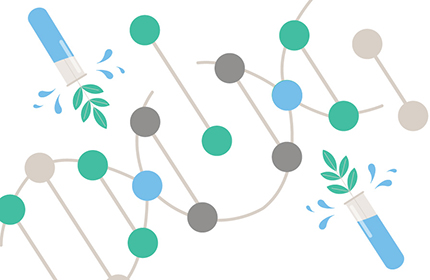Problem Formulation and Safety Assessment of Foods Derived from Modern Biotechnology
-
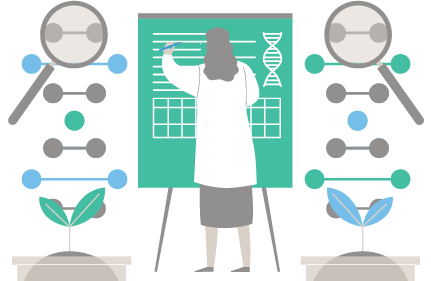
July 25, 2022-July 26, 2022
9:00 am - 5:00 pmThe Plaza Hotel Seoul
Seoul, Korea (Workshop 3)
Overview
On July 25-26, 2022, the Agriculture & Food Systems Institute organized an in-person workshop on Problem Formulation and Safety Assessment of Foods Derived from Modern Biotechnology at The Plaza Hotel in Seoul, Korea. This event built on the webinar series Gene Edited Plants: Context and Communication for Plant Breeding Innovation, which took place in 2021. The goal of this by-invitation-only series of activities was to improve dialogue between Korean government officials, scientists, and other stakeholders, as well as to enable effective communication on issues related to new plant breeding technologies. The first webinar in this series, held virtually on April 22, 2021, provided an introduction to gene editing and featured presentations on the science, regulatory landscape, and communication. The second webinar was a week-long event, held virtually on July 19-23, 2021, during which discussions continued among Korean stakeholders to better understand the technology of gene editing and varying regulatory approaches to products of gene editing.
The in-person workshop covered key concepts on problem formulation, codex principles, and the basics of food and feed safety assessment for whole foods. It also included a session on current global practices related to approaches for the regulation of gene edited organisms. The participants, through a series of lectures and practical exercises, gained experience in applying safety assessment concepts to products of gene editing. Participants were provided with a resource document containing case studies translated to Korean, and the presentations benefited from live translation.
Background
Gene editing refers to a family of precision plant breeding techniques being used to develop plants with beneficial traits ranging from resistance to abiotic and biotic stresses to nutritional enhancement. While there is no agreed upon international definition for these techniques, gene editing typically makes use of site-directed nucleases (SDNs) to introduce changes at a specific site in the genome. Depending upon the process, the resulting change could range from a point mutation to small sequence changes or potentially to the incorporation of entire genes. The regulation of gene edited plants is the subject of much discussion, particularly those that result from small sequence changes that are indistinguishable from plants produced through conventional mutagenesis methods.
In order to facilitate open and informed dialogue on science and policy, the Agriculture & Food Systems Institute is organizing a series of activities to convene scientists, risk assessors, regulators, and policymakers from academia, industry, and government in the Republic of Korea to discuss gene editing in the context of plant breeding and regulation. These discussions will potentially inform a science-based and transparent policy for the consideration of gene edited agricultural products. This series of activities on gene editing is supported by a grant from the USDA Foreign Agricultural Service, New Technologies and Production Methods Division. The events are by-invitation-only and cater to researchers, risk assessors, regulators, scientists, and academics in the Republic of Korea. The series is intended to provide Korean stakeholders an opportunity to better understand the technology of gene editing and foster open dialogue between Korean government officials, scientists, and other stakeholders on issues related to new plant breeding technologies.
The introductory webinar took place on April 22, 2021 and featured presentations by six experts from around the world on different aspects of gene editing, followed by a Q&A session, which set the stage for future discussions. This second webinar focused on examples of genome edited plants that have been developed around the world, as well as the approach to their regulation in different countries. In addition to presentations by international experts, attendees had the opportunity to participate in breakout groups, where facilitated discussions on different case studies took place. The opening and closing sessions were live-translated into Korean, and the breakout sessions were facilitated by Korean-speaking moderators. This third, in-person workshop on problem formulation took place on July 25-26, 2022 in Seoul.
Agenda
Day 1
July 25, 2022 | 9:00 am – 5:00 pm KST
| Time | Presentation/Activity | Speaker/Facilitator | |
| 9:00 am | Welcome and Introduction • Brief introduction to the Agriculture & Food Systems Institute (AFSI) • Review of the agenda for Day 1 • Participant introductions |
Dr. Bhavneet Bajaj Manager – Scientific Programs, Agriculture & Food Systems Institute, USA |
|
| 9:30 am | Problem Formulation: From Policy Choices to Testing Hypotheses | Prof. Alan Raybould (virtual) Chair of Innovation in the Life Sciences, University of Edinburgh, UK |
|
| 10:15 am | Overview of the Protection Goals in Korea • Protection goals for human and animal health and the environment • Interpretation of relevant Korean laws |
Dr. Homin Jang Chief Director, Korea Institute for Promoting Asia Biosafety Cooperation, Korea |
|
| 11:00 am | Tea Break | ||
| 11:30 am | Plants, Agriculture, and the Environment • Context for consideration of risks of genome editing • Domestication and development of plants with beneficial traits for agriculture |
Dr. Andrew Roberts Chief Executive Officer, Agriculture & Food Systems Institute, USA |
|
| 12:00 pm | New Plant Breeding Techniques • Status and future potential • Challenges: identification of target genes, off-target mutations, and what they mean in the context of safety |
Dr. Wayne Parrott Distinguished Research Professor, Institute of Plant Breeding, Genetics & Genomics, University of Georgia, USA |
|
| 12:30 pm | Open Forum and Q&A Session | Dr. Andrew Roberts Chief Executive Officer, Agriculture & Food Systems Institute, USA |
|
| 12:45 pm | Lunch | ||
| 2:00 pm | Principles of Risk Assessment • Risk assessment as a tool for decision making • Development of the modern ERA and food safety assessment paradigms for GM organisms |
Dr. Flerida Carino Consultant, Bureau of Plant Industry, Department of Agriculture and the Philippine Food and Drugs Administration |
|
| 2:30 pm | Whole GM Food Safety Assessment • How are assessments conducted • What information is used and useful? • What information is not useful? |
Dr. Shai Joseph Senior Regulatory Scientist, Biotechnology, Toxicology & Nutrition Science, Food Standards Australia New Zealand |
|
| 3:00 pm | Introduction to the Case Studies & Discussion of Exercises • Gene Editing of Cacao Tree to Save the World’s Chocolate • Gene Editing of Wheat to Reduce Carcinogens • Gene Editing of Red Sea Bream to Increase the Edible Portion of the Fish |
Dr. Bhavneet Bajaj Manager – Scientific Programs, Agriculture & Food Systems Institute, USA |
|
| 3:30 pm | Case Studies • Discussion within groups led by resource personnel • Q&A session |
Dr. Bhavneet Bajaj Manager – Scientific Programs, Agriculture & Food Systems Institute, USA |
|
| 5:00 pm | Dinner |
Day 2
July 26, 2022 | 9:00 am – 4:30 pm KST
| Time | Presentation/Activity | Speaker/Facilitator | |
| 9:00 am | Recap of Day 1 & Review of Agenda for Day 2 | Dr. Bhavneet Bajaj Manager – Scientific Programs, Agriculture & Food Systems Institute, USA |
|
| 9:15 am | Readout for Case Study 1: Gene Editing of Cacao Tree to Save the World’s Chocolate | Dr. Chee Hark Harn Director, Seed R&BD Headquarters, ToolGen Inc., Korea |
|
| 9:30 am | Readout for Case Study 2: Gene Editing of Wheat to Reduce Carcinogens | Dr. Donghern Kim CEO, Mediprogen and Vice-President, Future Food Resources Forum, Korea |
|
| 9:45 am | Readout for Case Study 3: Gene Editing of Red Sea Bream to Increase the Edible Portion of the Fish |
Dr. Yong-Sam Kim CEO, GenKOre and Associate Director, Genome Editing Research Center, Korea Research Institute of Bioscience and Biotechnology, Korea |
|
| 10:00 am | Gene Editing: An International Perspective • Developments in the EU |
Dr. Peter Kearns (virtual) Special Advisor, Re-imagine Europa and Principal Administrator (former), OECD |
|
| 10:30 am | Tea Break | ||
| 11:00 am | Gene Editing Policy in Philippines • Exemptions on SDN-1 and SDN-2 products |
Dr. Flerida Carino Consultant, Bureau of Plant Industry, Department of Agriculture and the Philippine Food and Drugs Administration |
|
| 11:30 am | Exemptions in the United States Department of Agriculture’s Biotechnology Regulations | Dr. Kayla Knilans (virtual) Scientific Policy Advisor, USDA-APHIS, USA |
|
| 12:00 pm | Panel Discussion: Considerations for Assessing the Products of Gene Editing | ||
| 1:00 pm | Lunch | ||
| 2:00 pm | Developing Biotech Crops | Ms. Muffy Koch Senior Regulatory Affairs Manager, J.R. Simplot Company, USA |
|
| 2:30 pm | Open Forum and Q&A Session | Dr. Andrew Roberts Chief Executive Officer, Agriculture & Food Systems Institute, USA |
|
| 3:15 pm | Closing Remarks | Mr. Mark Dries Minister Counselor, Office of Agricultural Affairs, U.S. Embassy – Seoul, Korea |
|
| 4:00 pm | Tea Break | ||
| 4:30 pm | Adjourn |
Speaker Bios
Dr. Bhavneet Bajaj
Manager - Scientific Programs, Agriculture & Food Systems Institute, USA
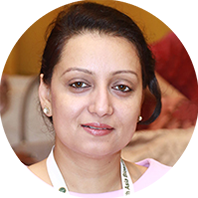 Dr. Bhavneet Bajaj joined the Agriculture & Food Systems Institute (AFSI)in July 2018 as Scientific Program Manager. She has been involved in projects related to safety assessment of foods and feeds derived from genetically engineered plants and serves as a resource person in providing technical support for capacity building programs in biotechnology. She was also the program lead for USDA-funded technical training for Chinese and Indonesian regulators and manages operations for both the Crop Composition Database and the World Nutrient Databases for Dietary Studies.
Dr. Bhavneet Bajaj joined the Agriculture & Food Systems Institute (AFSI)in July 2018 as Scientific Program Manager. She has been involved in projects related to safety assessment of foods and feeds derived from genetically engineered plants and serves as a resource person in providing technical support for capacity building programs in biotechnology. She was also the program lead for USDA-funded technical training for Chinese and Indonesian regulators and manages operations for both the Crop Composition Database and the World Nutrient Databases for Dietary Studies.
Prior to joining AFSI, Dr. Bajaj was a Visiting Scientist at the Sustainable Agricultural Systems Laboratory, Agricultural Research Service, USDA, where she worked on carotenoid pathway regulation in tomatoes. Before then, she was Associate Investigator with the Plant Protection group at (then) DuPont, where she devised a metabolic engineering strategy for insect control in soybean. While in India, she was an Assistant Professor at Jaipur National University, where she taught genetic engineering, enzymology, and biochemistry courses to M.Sc. level students. Her research work over the past 12 years involved plant secondary metabolites of nutritional, agricultural, and medicinal importance.
Prof. Alan Raybould
Chair of Innovation in the Life Sciences, University of Edinburgh, UK
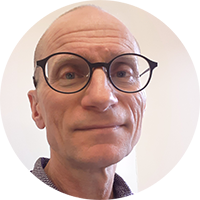 Prof. Alan Raybould joined the University of Edinburgh in 2019 as Professor of Innovation in the Life Sciences. His research focuses on the use of science to inform decision-making, particularly improving the efficiency and effectiveness of regulation of products of biotechnology in agriculture and food production. Following a Ph.D. in genetics at the University of Birmingham, he became a Principal Scientific Officer at the Centre for Ecology and Hydrology. He joined Syngenta at Jealott’s Hill in the UK in 2001, where he led the preparation of environmental risk assessments as part of worldwide regulatory submissions for Syngenta’s genetically modified crop products. He later moved to Syngenta’s headquarters in Basel, Switzerland in 2014, where he was a Senior Science & Technology Fellow working on risk assessment and societal acceptance of agricultural products of new technology, including insect-control sprays based on RNA interference, and crops bred using gene editing.
Prof. Alan Raybould joined the University of Edinburgh in 2019 as Professor of Innovation in the Life Sciences. His research focuses on the use of science to inform decision-making, particularly improving the efficiency and effectiveness of regulation of products of biotechnology in agriculture and food production. Following a Ph.D. in genetics at the University of Birmingham, he became a Principal Scientific Officer at the Centre for Ecology and Hydrology. He joined Syngenta at Jealott’s Hill in the UK in 2001, where he led the preparation of environmental risk assessments as part of worldwide regulatory submissions for Syngenta’s genetically modified crop products. He later moved to Syngenta’s headquarters in Basel, Switzerland in 2014, where he was a Senior Science & Technology Fellow working on risk assessment and societal acceptance of agricultural products of new technology, including insect-control sprays based on RNA interference, and crops bred using gene editing.
Dr. Homin Jang
Chief Director, Korea Institute for Promoting Asia Biosafety Cooperation, Korea
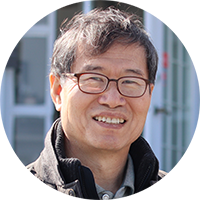 Dr. Homin Jang has engaged in biosafety issues for over 20 years, having diverse experiences in from being delegated to the Biosafety Working Group on drafting the Cartagena Protocol on Biosafety in the late 1990s to dealing with national needs such as risk communication, information management through Korea Biosafety Clearing House, and policy coordination among related Ministries and agencies as well. Building on the experience and lessons gained from his early and consistent involvement in biosafety, he additionally developed an initiative to bring up cooperation in biosafety among Asia countries through workshops and seminars. He has dealt with diverse topics, including information management, risk communication, controversial issues like environmental release, regulating genome editing, etc. The creation of the Asia Biosafety Family and the recent UNEP’s approval of the Asia Multi-Countries Project on Biosafety are good examples of his consistent efforts to inspire cooperation on biosafety among Asian countries.
Dr. Homin Jang has engaged in biosafety issues for over 20 years, having diverse experiences in from being delegated to the Biosafety Working Group on drafting the Cartagena Protocol on Biosafety in the late 1990s to dealing with national needs such as risk communication, information management through Korea Biosafety Clearing House, and policy coordination among related Ministries and agencies as well. Building on the experience and lessons gained from his early and consistent involvement in biosafety, he additionally developed an initiative to bring up cooperation in biosafety among Asia countries through workshops and seminars. He has dealt with diverse topics, including information management, risk communication, controversial issues like environmental release, regulating genome editing, etc. The creation of the Asia Biosafety Family and the recent UNEP’s approval of the Asia Multi-Countries Project on Biosafety are good examples of his consistent efforts to inspire cooperation on biosafety among Asian countries.
Dr. Andrew Roberts
Chief Executive Officer, Agriculture & Food Systems Institute, USA
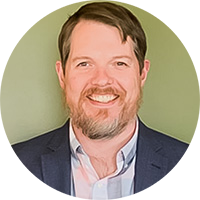 Dr. Andrew Roberts joined the Agriculture & Food Systems Institute (AFSI) in December 2009 as the Deputy Director of the Center for Environmental Risk Assessment (CERA), where he developed tools and materials for use in training and capacity building related to the problem formulation approach to environmental risk assessment and served as the coordinator for CERA’s capacity building projects under the USAID-funded South Asia Biosafety Program (SABP) and the World Bank-funded Partnership for Biosafety Risk Assessment and Regulation, in Bangladesh, Pakistan, and Vietnam. He also provided technical support for capacity building work in Brazil, India, Japan, Chile, and South Africa. In January 2015, he became the director of CERA, as well as the Center for Safety Assessment of Food and Feed (CSAFF), which worked on food and feed safety assessment for foods derived from genetically engineered plants. The two centers were later consolidated under the Research Foundation, for which he became Deputy Executive Director in January 2017. When the organization became the Agriculture & Food Systems Institute in 2020, his title shifted to Vice President – Biotechnology, and he assumed the role of CEO later that year.
Dr. Andrew Roberts joined the Agriculture & Food Systems Institute (AFSI) in December 2009 as the Deputy Director of the Center for Environmental Risk Assessment (CERA), where he developed tools and materials for use in training and capacity building related to the problem formulation approach to environmental risk assessment and served as the coordinator for CERA’s capacity building projects under the USAID-funded South Asia Biosafety Program (SABP) and the World Bank-funded Partnership for Biosafety Risk Assessment and Regulation, in Bangladesh, Pakistan, and Vietnam. He also provided technical support for capacity building work in Brazil, India, Japan, Chile, and South Africa. In January 2015, he became the director of CERA, as well as the Center for Safety Assessment of Food and Feed (CSAFF), which worked on food and feed safety assessment for foods derived from genetically engineered plants. The two centers were later consolidated under the Research Foundation, for which he became Deputy Executive Director in January 2017. When the organization became the Agriculture & Food Systems Institute in 2020, his title shifted to Vice President – Biotechnology, and he assumed the role of CEO later that year.
Prior to joining AFSI, Dr. Roberts worked at the U.S. Department of Agriculture (USDA) in several different capacities, all related to the regulation of agricultural biotechnology. He began his career at USDA as an AAAS Risk Policy Fellow in the Office of Science of Biotechnology Regulatory Services (BRS), the group responsible for regulating genetically engineered plants at USDA’s Animal Plant Health Inspection Service. After spending a year in the New Technologies office of the Foreign Agricultural Service serving as the lead for USDA’s efforts related to the Cartagena Protocol on Biosafety, he returned to BRS to serve in the International Affairs branch where he remained until joining AFSI.
Dr. Wayne Parrott
Distinguished Research Professor, Institute of Plant Breeding, Genetics & Genomics, University of Georgia, USA
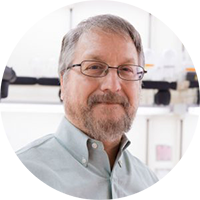 Dr. Wayne Parrott received a degree in agronomy from the University of Kentucky, and M.S. and Ph.D. degrees in Plant Breeding and Plant Genetics from the University of Wisconsin-Madison. He joined the faculty at the University of Georgia in 1988. Since then, he has published ~115 journal articles in refereed publications and 14 book chapters based on his research. He is actively engaged in training graduate students and postdoctoral fellows and teaches graduate-level courses in genetics and undergraduate courses in agroecology and sustainable agriculture.
Dr. Wayne Parrott received a degree in agronomy from the University of Kentucky, and M.S. and Ph.D. degrees in Plant Breeding and Plant Genetics from the University of Wisconsin-Madison. He joined the faculty at the University of Georgia in 1988. Since then, he has published ~115 journal articles in refereed publications and 14 book chapters based on his research. He is actively engaged in training graduate students and postdoctoral fellows and teaches graduate-level courses in genetics and undergraduate courses in agroecology and sustainable agriculture.
He is a past director of the University of Georgia’s Plant Center and served as a director for the NSF plant genome program in Washington and is currently the secretary for the American Society of Plant Biologists. He has served terms on the editorial boards of biotechnology journals. He is a past chair of the biotechnology section of the Crop Science Society of America and of the plant section of the Society for In Vitro Biology. He is a fellow of both societies, as well as of AAAS. He has traveled extensively throughout Latin America and other countries and advised legislators and regulators in the various countries on the requisites for a functional regulatory system that ensures the safety of modified products in agriculture.
Dr. Flerida Carino
Consultant, Bureau of Plant Industry, Department of Agriculture and the Philippine Food and Drugs Administration
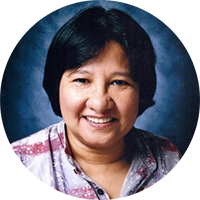 Dr. Flerida Cariño is currently a consultant for the Bureau of Plant Industry, Department of Agriculture and the Philippine Food and Drugs Administration. She retired as a full professor of Biochemistry from the University of the Philippines, Diliman and was a former director of two institutes of the University: the Institute of Chemistry and the Institute of Environmental Science and Meteorology. She was also the Physical Scientist member of the Department of Science and Technology (DOST) Biosafety Committee and has been involved in drafting policy and regulation of genetically modified organisms since 1994. She holds a Ph.D. in Insecticide Toxicology from Texas A&M University and has worked extensively with insecticide resistance genetics, biochemistry, and molecular biology.
Dr. Flerida Cariño is currently a consultant for the Bureau of Plant Industry, Department of Agriculture and the Philippine Food and Drugs Administration. She retired as a full professor of Biochemistry from the University of the Philippines, Diliman and was a former director of two institutes of the University: the Institute of Chemistry and the Institute of Environmental Science and Meteorology. She was also the Physical Scientist member of the Department of Science and Technology (DOST) Biosafety Committee and has been involved in drafting policy and regulation of genetically modified organisms since 1994. She holds a Ph.D. in Insecticide Toxicology from Texas A&M University and has worked extensively with insecticide resistance genetics, biochemistry, and molecular biology.
Dr. Cariño has served as faculty in several local and international training programs on food safety and environmental risk assessment for several international organizations involved in biosafety capacity building and for various Philippine government institutions involved in the regulation of genetically modified organisms. She was a member of the Scientific Advisory Board of the Organization for the Prohibition of Chemical Weapons (OPCW) and has actively represented the Philippine position in the Convention on Biological Diversity and meetings of parties to the Cartagena Protocol on Biosafety of Living Modified Organisms.
Dr. Shai Joseph
Senior Regulatory Scientist, Biotechnology, Toxicology & Nutrition Science, Food Standards Australia New Zealand
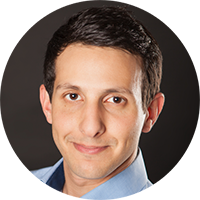 Dr. Shai Joseph is a senior scientist in the Biotechnology, Toxicology and Nutrition Science Section at Food Standards Australia New Zealand. In this role, he has gained a thorough understanding of biotechnology applications for food, whole food safety assessments and food regulation. His Ph.D. and research experience is in the field of genetics and molecular biology, and he also worked in science communication, where he translated complex information into easy-to-understand material. He uses his knowledge and skills to communicate about biotechnology and food to a range of audiences, including decision-makers, scientists, and the general public.
Dr. Shai Joseph is a senior scientist in the Biotechnology, Toxicology and Nutrition Science Section at Food Standards Australia New Zealand. In this role, he has gained a thorough understanding of biotechnology applications for food, whole food safety assessments and food regulation. His Ph.D. and research experience is in the field of genetics and molecular biology, and he also worked in science communication, where he translated complex information into easy-to-understand material. He uses his knowledge and skills to communicate about biotechnology and food to a range of audiences, including decision-makers, scientists, and the general public.
Dr. Chee Hark Harn
Director, Seed R&BD Headquarters, ToolGen Inc., Korea
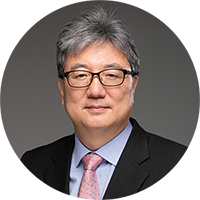 Dr. Chee Hark Harn is Director of the Seed R&BD Headquarter at ToolGen Inc. Since 2018, ToolGen Inc. has been developing new genetic resources and seeds using CRISPR/Cas9 technology. Dr. Harn majored in Biology at Chung-Ang University, Korea, and he moved to the USA for his M.S. (OSU, Oregon) and Ph.D. (Rutgers Univ., New Jersey). As a graduate student, he built up his science background in Genetics, Biochemistry, and Plant Molecular Biology. For his postdoc training, he worked on Plant Biotechnology, focusing on starch and sucrose biosynthesis’s metabolic engineering. He went back to Korea in 1996 and worked at the Korea Research Institute of Bioscience and Biotechnology (KRIBB) as a research scientist for three years. He then moved to Nongwoo Bio Co., a seed company, serving as a project leader, a Biotechnology Institute director, and a director of the R&D Headquarter.
Dr. Chee Hark Harn is Director of the Seed R&BD Headquarter at ToolGen Inc. Since 2018, ToolGen Inc. has been developing new genetic resources and seeds using CRISPR/Cas9 technology. Dr. Harn majored in Biology at Chung-Ang University, Korea, and he moved to the USA for his M.S. (OSU, Oregon) and Ph.D. (Rutgers Univ., New Jersey). As a graduate student, he built up his science background in Genetics, Biochemistry, and Plant Molecular Biology. For his postdoc training, he worked on Plant Biotechnology, focusing on starch and sucrose biosynthesis’s metabolic engineering. He went back to Korea in 1996 and worked at the Korea Research Institute of Bioscience and Biotechnology (KRIBB) as a research scientist for three years. He then moved to Nongwoo Bio Co., a seed company, serving as a project leader, a Biotechnology Institute director, and a director of the R&D Headquarter.
Dr. Harn has served in several Universities, as an Adjunct Professor, and Academic Societies, as a president (Korean Society of Plant Biotechnology and Korean Society for Horticultural Science), during the last 20 years. He has also served as a committee member of many government-organized meetings, including the National Science & Technology Council, Korea.
Dr. Donghern Kim
CEO, Mediprogen and Vice-President, Future Food Resources Forum, Korea
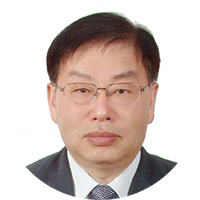 Dr. Donghern Kim worked with the Rural Development Administration (RDA) under the Ministry of Agriculture in Korea for 25 years in differing capacities. He held various positions at RDA, including director of the Crop Genomics Division, Crop Genetic Engineering Division, Biosafety Division, and Bio-Resources Management Division before retiring. He is an expert on GM technology and has extensive knowledge on the regulation of GMOs and GE crops in Korea. As the head of the Biosafety Division, Dr. Kim established the methodology of GMO risk assessment to comply with national GM crop regulatory rules. As the Director General of the Department of Agricultural Biotechnology, he oversaw RDA’s R&D projects, as well as the national programs for agricultural biotechnology.
Dr. Donghern Kim worked with the Rural Development Administration (RDA) under the Ministry of Agriculture in Korea for 25 years in differing capacities. He held various positions at RDA, including director of the Crop Genomics Division, Crop Genetic Engineering Division, Biosafety Division, and Bio-Resources Management Division before retiring. He is an expert on GM technology and has extensive knowledge on the regulation of GMOs and GE crops in Korea. As the head of the Biosafety Division, Dr. Kim established the methodology of GMO risk assessment to comply with national GM crop regulatory rules. As the Director General of the Department of Agricultural Biotechnology, he oversaw RDA’s R&D projects, as well as the national programs for agricultural biotechnology.
He has a Ph.D. from the University of Michigan and currently serves as the CEO of Mediprogen, a plant biotech company that uses soybean seeds as a platform for the production of valuable biopharmaceuticals and biosimilars. Since 2019, he has been serving as Vice-President of the Future Food Resources Forum, a non-profit advocating innovative technologies in agriculture, such as genetic engineering and gene editing.
Dr. Yong-Sam Kim
CEO, GenKOre and Associate Director, Genome Editing Research Center, Korea Research Institute of Bioscience and Biotechnology, Korea
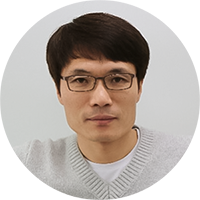 Dr. Yong-Sam Kim is a principal investigator working for the Korea Research Institute of Bioscience and Biotechnology (KRIBB). He is also the director of Genome Editing Research Center in KRIBB. He holds B.A., M.S., and Ph.D. degrees from the Seoul National University, majoring in Agricultural Chemistry. He earned a Ph.D. degree with a thesis on an auxin binding protein. He was a research associate for Fred Hutchinson Cancer Research Center in 2011. Currently, his main research interests include the development of a novel genome editing technology and improvement of CRISPR technologies. His major achievement is the development of highly efficient CRISPR-Cpf1 and CRISPR-Cas12f systems through the engineering of CRISPR RNA. The engineered CRISPR-Cpf1 shows genome editing efficiency that surpasses that of CRISPR-Cas9 system. The highly efficient CRISPR systems are expected to harness genome editing-based gene therapy and the development of various plant varieties. He is also seeking to apply genome editing tools to facilitate the development of cancer-specific biomarkers by genome-engineering model animals. He is the CEO of GenKOre in Korea.
Dr. Yong-Sam Kim is a principal investigator working for the Korea Research Institute of Bioscience and Biotechnology (KRIBB). He is also the director of Genome Editing Research Center in KRIBB. He holds B.A., M.S., and Ph.D. degrees from the Seoul National University, majoring in Agricultural Chemistry. He earned a Ph.D. degree with a thesis on an auxin binding protein. He was a research associate for Fred Hutchinson Cancer Research Center in 2011. Currently, his main research interests include the development of a novel genome editing technology and improvement of CRISPR technologies. His major achievement is the development of highly efficient CRISPR-Cpf1 and CRISPR-Cas12f systems through the engineering of CRISPR RNA. The engineered CRISPR-Cpf1 shows genome editing efficiency that surpasses that of CRISPR-Cas9 system. The highly efficient CRISPR systems are expected to harness genome editing-based gene therapy and the development of various plant varieties. He is also seeking to apply genome editing tools to facilitate the development of cancer-specific biomarkers by genome-engineering model animals. He is the CEO of GenKOre in Korea.
Dr. Peter Kearns
Special Advisor, Re-imagine Europa and Principal Administrator (former), OECD
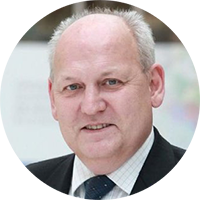 Dr. Peter Kearns was previously a Principal Administrator at the Organisation for Economic Co-operation and Development (OECD), an intergovernmental organisation based in Paris, France. He worked in the Environment, Health and Safety Division, which addresses, amongst other things, issues related to the safety of chemicals, pesticides and biotechnology. He headed OECD’s biosafety programme and was responsible for OECD’s Working Group for the Harmonisation of Regulatory Oversight in Biotechnology and the Working Group for the Safety of Novel Foods and Feeds. Both programmes address the safety of products derived from transgenic organisms. The former focuses on environmental safety while the latter addresses food and feed safety issues. Both Working Groups comprise delegates nominated by OECD member governments together with other partner countries and stakeholders. He also managed OECD’s Nanosafety Programme as well as its Programme on the Prevention, Preparedness and Response in relation to major chemical accidents.
Dr. Peter Kearns was previously a Principal Administrator at the Organisation for Economic Co-operation and Development (OECD), an intergovernmental organisation based in Paris, France. He worked in the Environment, Health and Safety Division, which addresses, amongst other things, issues related to the safety of chemicals, pesticides and biotechnology. He headed OECD’s biosafety programme and was responsible for OECD’s Working Group for the Harmonisation of Regulatory Oversight in Biotechnology and the Working Group for the Safety of Novel Foods and Feeds. Both programmes address the safety of products derived from transgenic organisms. The former focuses on environmental safety while the latter addresses food and feed safety issues. Both Working Groups comprise delegates nominated by OECD member governments together with other partner countries and stakeholders. He also managed OECD’s Nanosafety Programme as well as its Programme on the Prevention, Preparedness and Response in relation to major chemical accidents.
Dr. Kearns holds a Ph.D. in Genetics from the University of Cambridge, where he was a member of Darwin College. After a period of postdoctoral work at the Department of Genetics, Cambridge, he worked for the (then) UK Government Department for the Environment, where he was responsible for activities related to the regulation of GMOs and the relevant EU Directives. He is currently a Fellow of the Royal Society for Biology (UK) and a Visiting Fellow at the University of Edinburgh.
Dr. Kayla Knilans
Scientific Policy Advisor, USDA-APHIS, USA
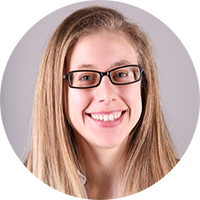 Dr. Kayla Knilans is a Policy Advisor in Animal and Plant Health Inspection Service (APHIS), Biotechnology Regulatory Service (BRS)’s Policy, Program, and International Collaboration (PPIC). She joined BRS in 2018 as a AAAS Science & Technology Policy Fellow and began a full-time position in 2020. She has a Ph.D. in pharmacology from the University of North Carolina and worked at the National Institutes of Health as a postdoctoral researcher. Prior to coming to BRS, she studied human diseases using mouse models, including infectious diseases, cancer, and inflammatory bowel disease.
Dr. Kayla Knilans is a Policy Advisor in Animal and Plant Health Inspection Service (APHIS), Biotechnology Regulatory Service (BRS)’s Policy, Program, and International Collaboration (PPIC). She joined BRS in 2018 as a AAAS Science & Technology Policy Fellow and began a full-time position in 2020. She has a Ph.D. in pharmacology from the University of North Carolina and worked at the National Institutes of Health as a postdoctoral researcher. Prior to coming to BRS, she studied human diseases using mouse models, including infectious diseases, cancer, and inflammatory bowel disease.
Ms. Muffy Koch
Senior Regulatory Affairs Manager, J.R. Simplot Company, USA
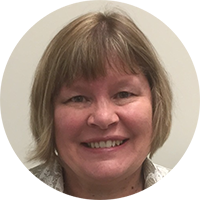 Ms. Muffy Koch is a senior regulatory manager at the J.R. Simplot Company and has 30 years of experience in the regulation and safety assessment of genetically modified organisms. She was educated and trained in South Africa, as a botanist and microbiologist. She worked for 8 years as a microbial and plant genetic engineer, for 10 years as a South African regulator, for 15 years training regulators internationally in the safety assessment of GMOs, and more recently in Boise, Idaho, helping to confirm the safety of new potato varieties.
Ms. Muffy Koch is a senior regulatory manager at the J.R. Simplot Company and has 30 years of experience in the regulation and safety assessment of genetically modified organisms. She was educated and trained in South Africa, as a botanist and microbiologist. She worked for 8 years as a microbial and plant genetic engineer, for 10 years as a South African regulator, for 15 years training regulators internationally in the safety assessment of GMOs, and more recently in Boise, Idaho, helping to confirm the safety of new potato varieties.

